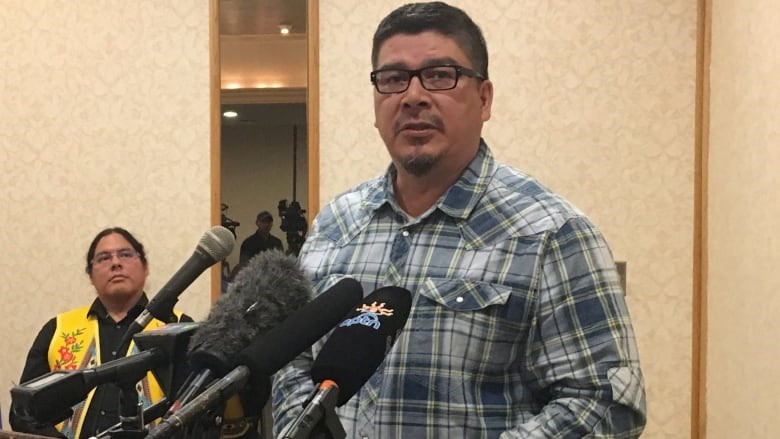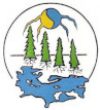4 Island Lake First Nations pull out of Manitoba Keewatinowi Okimakanak
‘We want to be in control of our own destiny,’ says St. Theresa Point Chief David McDougall

Four First Nations in the Island Lake region have announced that they are pulling out of the Manitoba Keewatinowi Okimakanak organization, a political advocacy group that has 30 member communities in Manitoba’s north.
“We want to be in control of our own destiny,” said David McDougall, the chief of St. Theresa Point First Nation.
The decision was announced by the four communities Thursday at a health conference being hosted in Winnipeg by the First Nations Health and Social Secretariat of Manitoba.
The chiefs from the Island Lake region — including the Wasagamack, St. Theresa Point, Red Sucker Lake and Garden Hill First Nations — say they hope the move creates a stronger governance structure in their communities.
“There are certain things that are happening that are quite urgent in our region,” said McDougall.
He pointed to the housing needs of St. Theresa Point, saying the First Nation has fewer than half of the houses needed for his community.
“Any organization that has other priorities or pressing issues from other regions, we need a more direct approach to tend to our needs.”
McDougall, who used to work for MKO, said the population of the Island Lake region is close to 14,000 people. That would account for about a quarter of the population of the MKO region.
He says given their size, the four Island Lake First Nations weren’t fairly represented in MKO’s membership.
“When you see the numbers and there is 30 people voting from the table, and there’s only four of us, it’s disproportionate,” said McDougall.
The four reserves in the Island Lake region are in close proximity to each other and originally comprised a larger nation with its own distinct language group — the Anishininew, or Oji-Cree, nation.
According to McDougall, the Island Lake region started off as one government as the communities were pulled together to sign Treaty 5.
“Now it’s gone down to four administrative units. We still consider ourselves as one,” he said.
Autonomy and decision making
Discussion about leaving the MKO organization has been underway for years now, and was the result of community consultations with the leadership of the four communities, the Island Lake chiefs say.
“The message is that Island Lake communities want to start creating their own autonomy and governing their own affairs,” said Alex McDougall, chief of Wasagamack First Nation.
“I think we’re capable of doing that on our own now and not having to rely on MKO’s grand chief or any other organization.”
The communities plan to opt out of MKO but stay involved with the Assembly of Manitoba Chiefs.
The Wasagamack chief said there is no bad blood between MKO and the Island Lake First Nations, but said that often when they are negotiating for better services, they feel they are not heard by the provincial and federal government, and are referred instead to MKO.
“The respect that the Island Lake communities deserve isn’t coming from certain departments in government,” he said.
“The plan for the four communities is to develop a nation-to-nation, government-to-government relationship with Canada.”
“We respect their decisions but have and will always try to find ways to help them when and where we can,” MKO said in a statement email to CBC News.
“We will also propose a meeting to discuss the matter with our MKO executive council of chiefs.”
ABOUT THE AUTHOR
Lenard Monkman is Anishinaabe from Lake Manitoba First Nation, Treaty 2 territory. He is the co-founder of Red Rising Magazine and has been an associate producer with the CBC’s Indigenous unit for three years. Follow him on Twitter: @Lenardmonkman1

